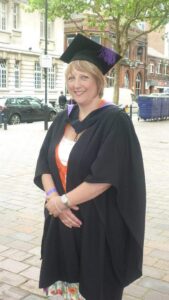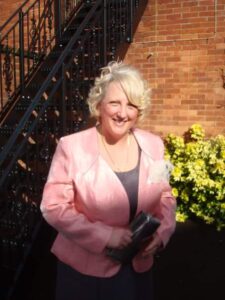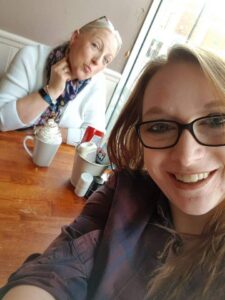According to NHS.co.uk Dyslexia is defined as : a common learning difficulty that can cause problems with reading, writing and spelling.It’s a specific learning difficulty, which means it causes problems with certain abilities used for learning, such as reading and writing.
Unlike a learning disability, intelligence isn’t affected.It’s estimated up to 1 in every 10 people in the UK has some degree of dyslexia which is a lifelong problem that can present challenges on a daily basis. Support is available, however, to improve reading and writing skills and help those with the problem to thrive at school and work.
According to NHS.co.uk. Dyspraxia, also known as developmental coordination disorder (DCD), is defined as: a common disorder that affects movement and coordination.
Dyspraxia does not affect your intelligence. It can, however, affect your coordination skills – such as tasks requiring balance, playing sports or learning to drive a car. Dyspraxia can also affect your fine motor skills, such as writing or using small objects
Growing up I always thought that my dear dear mum was a clumsy and forgetful person, and I remember that when I was at school studying for my GCSE’s she would often ask me to check her spelling. I just thought she wasn’t confident that her spelling was correct, after all we all have those words we find difficult to spell, mine is “Receive”. Thank God for spell check and autocorrect. But what do you do when not one but two different people ask if you are Dyslexic ?
Following her diagnosis earlier this year I asked my beautiful mother what it was like finally finding out in her 50s she is not only Dyslexic but has Dyspraxia.
Mum works as a Clinical Pharmacy Technician, helping to support GP surgeries and nursing homes with their medicine management. When dealing with drugs on a regular basis it is absolutely vital that the correct medicine and amount is dispensed, and of course, there is no room for error. So how does someone with Dyslexia ensure that she doesn’t make any mistakes? What prompted her to get tested? How does she feel about her diagnosis? What help is available to fellow dyslexics? I asked Mum all of this and more.
What prompted you to get tested for Dyslexia?
‘4 years ago my then line manager asked if I was Dyslexic and they even offered to pay for the test to find out. This test would have set the NHS back roughly £500 and I did not want them wasting that money as I had always assumed I was just thick. However, at this point, I took it upon myself to go to night school to improve my language as I was only using simple words in my work, and my punctuation was very poor. Then at the beginning of 2020 someone else asked me again if I was Dyslexic. I then went online and discovered that I did in fact show signs of Dyslexia and I found a woman who offers private assessments. I wanted to find out one way or the other and at least this time it was coming out my pocket and not the NHS’s.
What was the testing process like?
‘I was asked questions about my childhood and about what school was like when I was younger. She also asked if I was clumsy which made me chuckle, as any member of my family will tell you that I am known for always bumping into things or stumbling. With that said she explained that she was going to test me for both Dyslexia and Dyspraxia.
With one test there were various shapes that she had made up from a number of squares, I then had to mimic these. I did struggle to make up some shapes. Another test required me to read a passage from a book and then she questioned me about about my understanding of the passage, particularly certain words.
One test which I found very difficult was where she would say a sequence of numbers and letters, for example “1C2D4H7F3K” and I would then have to repeat it back to her but backwards.
In another test she would tap out a rhythm which I would then have to copy, I found this fairly easy.
Finally after an assessment that lasted nearly 3 hours she revealed that I did in fact have Dyslexia and Dyspraxia. Which did come as a bit of a shock to me and I was concerned that others would say that I was not fit to do my job anymore. And then the imposter syndrome set in, how did I get here if I couldn’t read properly?
And whats more I was not just Dyslexic, but I also had Dyspraxia… Until that day I had never heard of Dyspraxia let alone what it was, but once she explained the condition, my clumsiness started to make sense.
Looking back on everything you have achieved ( a degree and NVQ) despite your undiagnosed Dyslexia, are you proud?
‘I wouldn’t say proud, I am however surprised that I have been able to achieve so much. I had to work extremely hard to achieve my NVQ and degree, graduating from Portsmouth University in 2012 with a foundation degree in Science.I poured my heart and soul into achieving my qualifications. and as I am very slow at reading I had to keep re-reading things to make sure I understood them properly and if I had been diagnosed earlier and had the help one can receive now, my life would have been considerably easier. So, not proud, but frustrated that it was harder than it had to be.’
Tell us what help is available now?
‘Work is wonderfully supportive, and I also have an array of practical support: one piece of software converts my speech to text which is a great help and then there is a different piece of software which will read any documents for me, making my working life so much easier. I am also getting a dictaphone so i will be able to record meetings and then my computer will convert it to text for me.
What was school like for you?
‘Junior school was absolutely awful for me, I was called names and always lacked the confidence to ask questions on things that I didn’t understand. I was even held back a year. At the time Dyslexia wasn’t heard of so the teachers just treated me as if I was slow and not very bright. Luckily these days learning difficulties such as dyslexia are usually understood, and children are diagnosed at a young age.’
What advice would you give to others who are struggling with Dyslexia, or at least think they might have it?
‘I would say: get diagnosed, and then accept all the support offered. Do not be afraid to accept the help that is available to you. Make ‘to do’ lists to help organise your day. I am also a member of a Facebook group called Dyslexia UK which is a great support to me and I find that it is a relief to talk to fellow sufferers.
When Mum told me her diagnosis I was so surprised.
I have always been so proud of her, of everything that she has achieved whilst juggling her career and her family, but on learning that she did all of that whilst being dyslexic just blows me away: ‘Caryn Peeke you are one phenomenal woman and I am very proud to call you my mother.’
Margaret Graham, editor of Frost Magazine says, ‘Yes, indeed, Caryn Peeke is so inspiring, and with a mother like that, no wonder her daughter, our Natalie – West Country Corespondent, is so remarkable.‘



